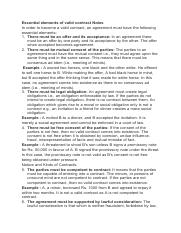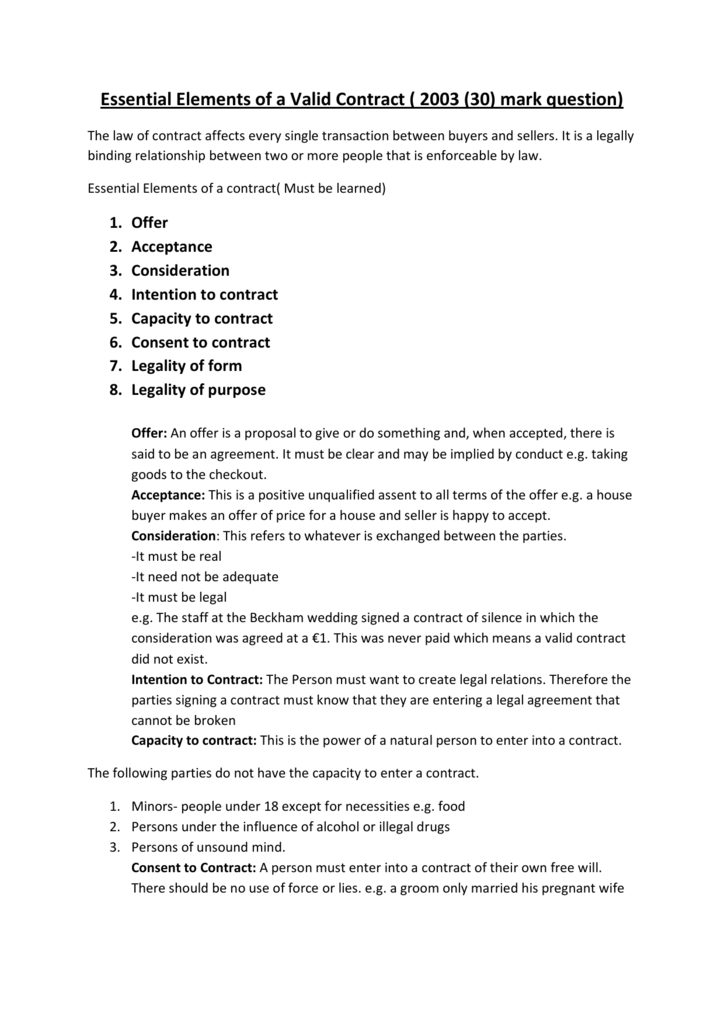A valid contract is a legally binding agreement between two or more parties that outlines the terms and conditions of a particular arrangement. It is essential for a contract to be valid in order for it to be enforceable by law. In this essay, we will explore the essential elements of a valid contract and how they ensure that the contract is legally binding.
The first element of a valid contract is offer and acceptance. An offer is a proposal made by one party to another party, outlining the terms and conditions of a potential agreement. The acceptance is the acceptance of the offer by the other party, indicating their agreement to the terms and conditions outlined in the offer. In order for a contract to be valid, both parties must have the intention to enter into a legally binding agreement, and the acceptance must be communicated to the offeror.
The second element of a valid contract is consideration. Consideration refers to the value exchanged between the parties in a contract. It can be in the form of money, goods, services, or a promise to do or not do something. Consideration must be present in order for a contract to be legally binding, as it demonstrates that both parties have given something of value in exchange for the performance of the contract.
The third element of a valid contract is capacity. Capacity refers to the legal ability of the parties to enter into a contract. In order for a contract to be valid, both parties must have the legal capacity to enter into a contract. This means that they must be of legal age and possess the mental capacity to understand the terms and conditions of the contract.
The fourth element of a valid contract is legality. A contract must be legal in order for it to be enforceable. This means that the subject matter of the contract must be legal and not contrary to any laws or public policy.
The fifth element of a valid contract is formality. While not all contracts need to be in writing, some contracts must be in writing in order to be enforceable. For example, contracts that involve the sale of real estate or contracts that will last for more than one year must be in writing.
In conclusion, the essential elements of a valid contract include offer and acceptance, consideration, capacity, legality, and formality. These elements ensure that the contract is legally binding and enforceable by law. It is important for all parties involved in a contract to understand and adhere to these elements in order to avoid potential legal disputes.









